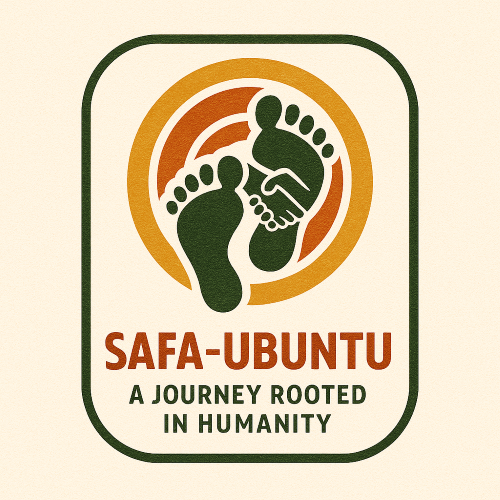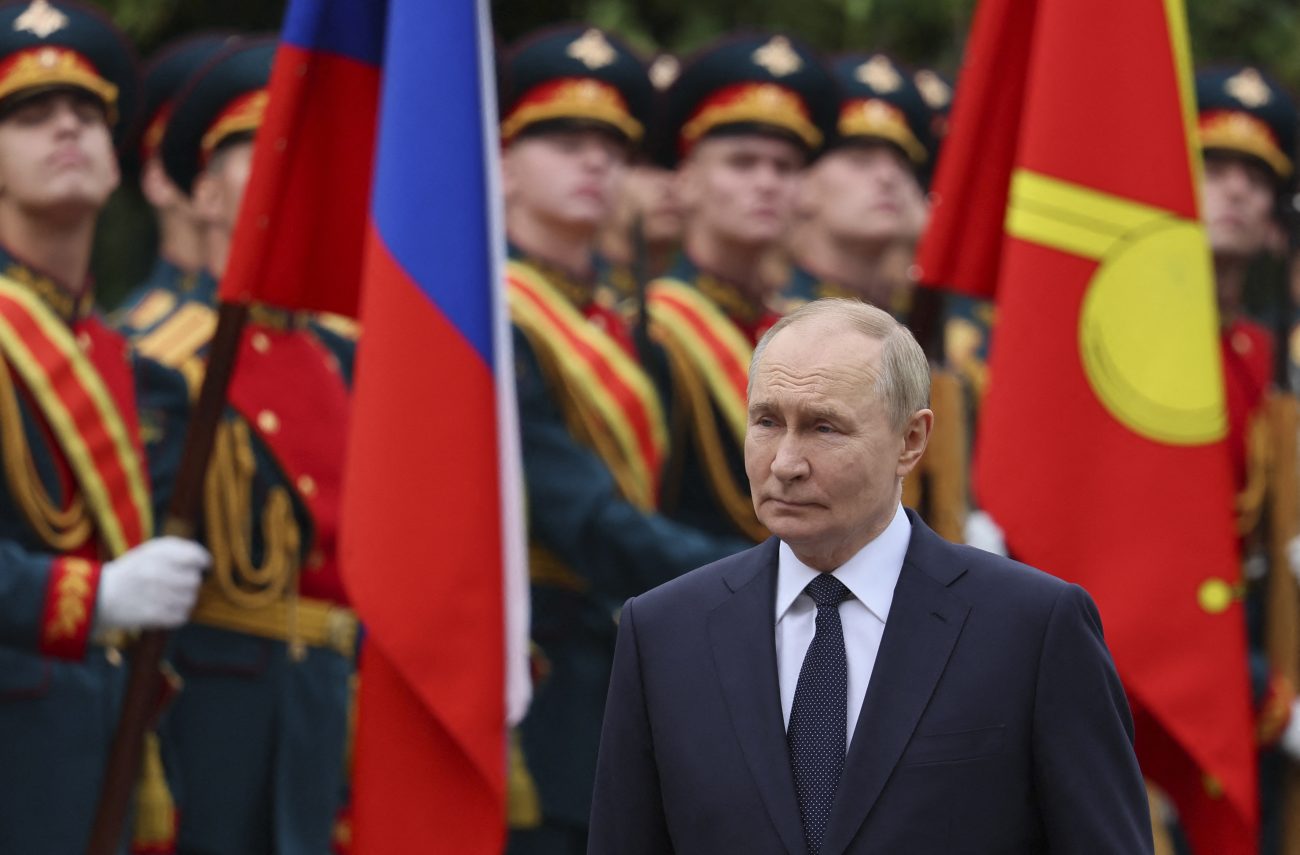Ukraine Is Afghanistan 2.0 For Russia! How Moscow Is Rapidly Losing Power & Prestige That It Once Boasted!

There is an old English proverb, “You can’t be in two places at once.” Not unless you’re a global superpower. For Russia, this rings painfully true as its entanglement in the Ukraine war since February 2022 has stretched its resources and attention thin, leaving its last few remaining allies vulnerable.
The costly Ukraine war has cracked open Russia’s misplaced ambitions of being a global superpower and exposed its inability to protect and safeguard even its ‘Russkiy Mir,’ the Russian world, forget protecting its sphere of influence in far-off places like the Middle East.
Like an emperor with no clothes, President Vladimir Putin stands exposed as a strongman who cannot protect his allies, cannot fulfill his security guarantees, and cannot come to the rescue of countries that stood by Russia through thick and thin.
His ambitions to restore Russia’s global stature are unraveling, with one country after another slipping from Moscow’s grip. From the Middle East to the Caucasus, Scandinavia to Central Asia, Russia’s preoccupation with Ukraine has exposed its inability to sustain its geopolitical commitments, echoing the Soviet Union’s quagmire in Afghanistan that precipitated its collapse.
Russia’s war in Ukraine has cost it influence, country by country. As Russian troops advance in Ukraine’s southeast, winning territory inch by inch while taking heavy casualties, Moscow’s influence in the rest of the world is eclipsing with hypersonic velocity.
Russia’s global influence today stands as a pale shadow of its former self, when countries actually believed that Russian support could turn the tide in their favour.
Syria: From Triumph To Tragedy
Syria was once Putin’s crowning achievement in foreign policy. In 2015, Russia’s intervention turned the tide for President Bashar al-Assad, who faced a coalition of enemies including ISIS, Turkish-backed rebels, and U.S.-supported forces.
Russian air campaigns, coordinated with Iranian ground support, crippled opposition strongholds, allowing Assad to reclaim key territories. Moscow’s naval base in Tartus and airbase in Hmeimim in Syria cemented Russia’s foothold in the Mediterranean, allowing it to project power across the Middle East and Africa.
Yet, in 2024, this success unraveled. As Syrian rebels led by Hay’at Tahrir al-Sham (HTS) and backed by Turkey, launched a new decisive offensive, Assad’s regime collapsed, forcing him to flee to Moscow.
Russia, bogged down in Ukraine, lacked the resources to intervene effectively. Its diminished presence in Syria, coupled with Israel’s degradation of Hezbollah, another Russian and Iran-aligned force, left Moscow scrambling to maintain its bases under a new, uncertain regime.
As the proverb goes, “Pride comes before a fall.” Syria’s loss exposed Russia’s overextension, undermining its Middle Eastern influence.
Armenia: A Betrayed Ally
Armenia, a former Soviet state and a member of the Russia-led Collective Security Treaty Organization (CSTO), has long relied on Moscow for security against Azerbaijan and Turkey.
Yet, Russia’s war with Ukraine left Armenia abandoned during its most critical hour. In 2023, Azerbaijan, backed by Turkey, seized Nagorno-Karabakh, displacing over 100,000 ethnic Armenians.
Russian peacekeepers, tasked with protecting the region, stood idly by, prompting fury in Yerevan. Armenia accused Moscow of failing its obligations, with unfulfilled weapons contracts exacerbating tensions.
Russia was treaty-bound to protect Armenia through bilateral agreements and the CSTO.
The 1997 Treaty on Friendship, Cooperation, and Mutual Assistance between Russia and Armenia stipulates mutual defense, stating that an attack on one is considered an attack on both, with provisions for immediate consultations and joint defense measures.
Additionally, Armenia’s membership in the CSTO, established in 1992, includes Article 4, which treats aggression against one member as aggression against all, obligating military assistance.
Yet, Armenia’s desperate pleas for help fell on deaf ears, as Russia was too engaged in Ukraine to open a new front.
Frustrated, Armenia pivoted toward France and India for arms, while effectively suspending its CSTO participation. Russia cautioned Armenia against aligning with the West, but the damage was already done.
Turkey’s meddling in the Caucasus, supporting Azerbaijan, highlighted Russia’s inability to counter NATO-aligned powers in its own backyard.
When the push came to shove, Turkey proved a more reliable friend to Azerbaijan than Russia proved itself to Armenia.

Sweden & Finland: Neutrality Abandoned
Ironically, one of the central aims of the Ukraine war was to stop the NATO enlargement near Russian borders. Yet, the war in Ukraine achieved precisely that.
For decades, Sweden and Finland adhered to a policy of neutrality, wary of provoking Russia. The Ukraine invasion shattered this calculus. Fearing Moscow’s aggression, both nations applied for NATO membership in 2022, with Finland joining in 2023 and Sweden in 2024. This historic shift expanded NATO’s border with Russia, directly countering Putin’s aim to curb the alliance’s influence.
Their NATO accession not only bolstered Western defenses but also signaled the erosion of Russia’s influence in Northern Europe, a region it once dominated.
Central Asia: A New Great Game
Central Asia, once firmly within Russia’s sphere, is witnessing growing influence from Turkey, China, and the European Union. The 2023 Central Asia-EU Summit underscored Brussels’ ambition to deepen economic and security ties with Kazakhstan, Uzbekistan, and other countries.
Turkey, leveraging cultural and linguistic ties, has expanded its footprint through trade and military cooperation. Meanwhile, China’s Belt and Road Initiative has made it a dominant economic player, offering infrastructure investments that Russia cannot match.
Russia’s focus on Ukraine has left it unable to counter this encroachment. Its economic dependence on China, with bilateral trade reaching $240 billion in 2023, further limits Moscow’s leverage. The Russkiy Mir (Russian World) vision, intended to unify the former Soviet states, is fading as Central Asian nations diversify their partnerships.
Iran: The Last Straw?
Iran has been a key ally in Russia’s war in Ukraine, supplying Shahed drones and military technology.
Yet, when Iran faced Israeli strikes targeting its nuclear facilities in June 2025, Russia could offer little beyond diplomatic condemnation. Now, even the US has joined the bombing campaign, as Moscow could do little except issue hollow threats.
Moscow’s reliance on Iranian drones, now produced locally, underscores the partnership’s importance, but its inability to reciprocate support highlights its limitations. Russian media have noted the risks of losing Iran, especially after Syria’s fall, but Putin could do little to save his ally.
Russia’s overstretched commitments in Ukraine prevent it from bolstering Iran, potentially costing it another strategic ally.
Russia Stuck In Ukraine
Russia’s involvement in Ukraine has cost it dearly. Moscow has lost influence in the Middle East, Central Asia, and Scandinavia.
But is Moscow winning in Ukraine?
The answer to this question depends on how you define victory. It is true that Russia is advancing in Ukraine’s southeast. However, it is advancing at a snail’s pace, while incurring heavy casualties.
For a long time, Russia has worked on the assumption that, at some stage, the West’s determination to help Kyiv will wane, and constant pressure on the Ukrainian armed forces will lead to the frontline collapsing.
However, both of these assumptions seem misplaced. Russian troops are advancing, but the frontline is not collapsing.
Recently, Viktor Trehubov, spokesperson for the Khortytsia Operational-Strategic Grouping of Troops, said that at the current pace, Russia would need decades to reach the administrative borders of the Donetsk region, one of the stated goals of Russia’s special military operation in Ukraine.
“According to our estimates, it would take them several decades and several million casualties to succeed (in reaching the administrative borders of Donetsk region – ed.). Just look at their progress since 2023 and the losses they’ve sustained — we’re talking about hundreds of thousands of troops. Yes, there is some movement, but it’s limited to certain districts within the Donetsk region,” the spokesperson said.
Even if Russia is able to increase the pace of its advance, it will be many years before it can occupy the whole of the Donetsk region. If that can be considered a victory, then Russia can, indeed, win. But, this would be a hollow victory, one that would have come at the cost of millions of soldiers, a tremendous loss of wealth, and loss of strategic allies globally.
Echoes Of Afghanistan: A Historical Parallel
The Soviet Union’s invasion of Afghanistan in 1979 offers a stark comparison. Intended to prop up a communist regime, the war drained Soviet resources, killed 15,000 troops, and alienated allies.
The U.S.-backed mujahideen resistance, coupled with economic stagnation, weakened Moscow’s grip on its empire. By 1989, the Soviet withdrawal signaled the beginning of its decline, culminating in the dissolution of the USSR in 1991.
The war exposed the limits of Soviet power, as regional allies like Poland and Hungary drifted toward the West.
Similarly, Russia’s war in Ukraine has incurred staggering costs: an estimated 250,000 fatalities by mid-2025, surpassing Soviet losses in Afghanistan by a factor of 15.
The loss of Syria, Armenia’s drift, NATO’s expansion, and Central Asia’s realignment mirror the Soviet Union’s eroding influence. Even the Russkiy Mir is fracturing, with former Soviet states like Armenia seeking alternatives.
Conclusion: Afghanistan 2.0?
Is Ukraine becoming Afghanistan 2.0 for Russia?
The parallels are striking. Both wars reveal the perils of overreach, where ambition outstrips capacity. Putin’s vision of a resurgent Russia, challenging the West and uniting the Russkiy Mir, is crumbling under the weight of Ukraine.
The loss of allies—Syria, Armenia, and potentially Iran—coupled with NATO’s expansion, signals a shrinking sphere of influence.
While the Soviet Union collapsed after the Afghanistan War, Russia’s fate remains uncertain. Yet, the Ukraine war’s costs, diplomatic, military, and economic, suggest a trajectory of decline.
Putin, once a geopolitical mastermind, now appears an emperor with no clothes, unable to defend his allies or sustain his empire. Unless Russia recalibrates, Ukraine may indeed prove its Afghanistan 2.0, a quagmire that reshapes its destiny.
- Questions and Answers
- Opinion
- Motivational and Inspiring Story
- Technology
- Live and Let live
- Focus
- Geopolitics
- Military-Arms/Equipment
- Ασφάλεια
- Economy
- Beasts of Nations
- Machine Tools-The “Mother Industry”
- Art
- Causes
- Crafts
- Dance
- Drinks
- Film/Movie
- Fitness
- Food
- Παιχνίδια
- Gardening
- Health
- Κεντρική Σελίδα
- Literature
- Music
- Networking
- άλλο
- Party
- Religion
- Shopping
- Sports
- Theater
- Health and Wellness
- News
- Culture

